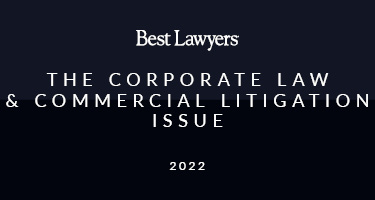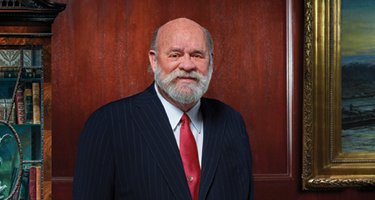Introduction
The case of Marty Limited v Hualon Corporation (Malaysia) Sdn Bhd (receiver and manager appointed) [2018] SGCA 63 was an appeal by the Appellant (Marty) against the decision of the Singapore High Court (the High Court) in BMO v BMP [2017] SGHC 127 which held that a sole arbitrator (the Tribunal) had jurisdiction over a dispute referred by the Respondent (Hualon) to arbitration (the Arbitration).
The question for the Singapore Court of Appeal (the Court of Appeal) was whether there was still a binding arbitration agreement between the parties, notwithstanding that Hualon had commenced litigation in respect of a dispute which should properly have been arbitrated.
Marty was successfully represented by Senior Counsel Philip Jeyaretnam, Paras Lalwani, Chua Weilin, Tan Ting Wei and Alexander Choo of Dentons Rodyk & Davidson LLP. The Dentons team took over the matter after the initial challenge to jurisdiction had failed before the Tribunal, and ultimately persuaded the Court of Appeal to find that Hualon had indeed repudiated the arbitration agreement.
The case turned on whether Hualon, when it had earlier commenced proceedings in the British Virgin Islands, had known of the existence of the arbitration agreement on which it later relied to commence arbitration. Hualon claimed it had commenced court proceedings in ignorance of the arbitration agreement, and so should not be considered to have repudiated that arbitration agreement. However, its claim depended on asserting that the contract in which the arbitration agreement was contained was invalid, as having been entered into without authority. The Dentons team, upon taking on the matter, identified the inconsistency between relying on an arbitration agreement and disclaiming the parent contract, and pressed Hualon to make a choice – to reprobate or approbate. If Hualon approbated, then, the argument went, it could not claim ignorance, while if it reprobated, it could not rely on the arbitration agreement.
Eventually, before the Court of Appeal, Hualon was forced to make an unequivocal choice. It approbated the parent contract, and then following from that was held to have repudiated the arbitration agreement contained in it.
Brief Facts
Prior to commencing the Arbitration, Hualon sued Marty and its two former directors and shareholders, Mr Oung Da Ming and Mr Oung Yu-Ming (the Oung Brothers), in the British Virgin Islands (the BVI Litigation) for breaches of statutory and fiduciary duties in effecting a series of share transfers in 1999, 2007 and 2008 (the Share Transfers) in its Vietnamese subsidiary, Hualon Vietnam. These Share Transfers had the effect of substantially reducing Hualon’s shareholding in Hualon Vietnam, and Hualon grounded its claim against Marty (the Dispute) in dishonest assistance, knowing receipt and unjust enrichment.
Hualon Vietnam was incorporated in December 1993 and re-registered by Mr Oung Da Ming in February 2008. This resulted in a new charter (the Revised Charter) being adopted, which included amongst other clauses, an arbitration clause at Article 22 (the Arbitration Agreement) providing for “all arising disputes” to be referred to arbitration administered by the Singapore International Arbitration Centre. Hualon’s position at the BVI Litigation was that Mr Oung Da Ming’s entry into the Revised Charter was “unlawful and ineffective” because he had entered into it without authority.
It was in the course of the BVI Litigation, which included inter alia, an application by Marty for summary judgment (the Summary Judgment Application) to strike out the BVI Litigation, that Hualon suddenly gave notice of its intention to stay the BVI Litigation in favour of Arbitration. Hualon claimed that despite having held the Revised Charter in its possession for at least 5 years, and despite having been advised by 5 sets of counsel and a due diligence report, it had no knowledge of the Arbitration Agreement.
At the Arbitration, Hualon maintained the position it took in the BVI Litigation that Mr Oung Da Ming’s entry into the Revised Charter was invalid as he had acted without authority, but nevertheless sought to rely on the Arbitration Agreement contained within the Revised Charter, and thus requested that the Tribunal rule on the question of its jurisdiction as a preliminary issue.
At the time, Marty, represented by previous counsel, advanced a number of arguments to challenge the Tribunal’s jurisdiction, including the fact that Hualon had waived and/or repudiated the Arbitration Agreement by commencing the BVI Litigation.
The Tribunal’s decision and the decision below
On 19 April 2016, the Tribunal held that it had jurisdiction over the Dispute. In particular, the Tribunal was not convinced that Hualon had actual knowledge of the Arbitration Agreement at the time it commenced the BVI Litigation. Thus, the Tribunal disagreed that Hualon had waived and/or repudiated the Arbitration Agreement.
Marty then appealed to the Singapore High Court on the question of the Tribunal’s jurisdiction, which had been decided as a preliminary issue. Dentons took over as counsel for Marty and began to press Hualon on the contradiction between denying the validity of the Revised Charter, and yet at the same time relying on the Arbitration Agreement contained within it. The law did not allow Hualon to both approbate and reprobate the Revised Charter.
Dentons added to the arguments on repudiation and waiver the critical point that Hualon could not have entered into the Arbitration Agreement because it had consistently taken the position that the Revised Charter was “unlawful and ineffective” given Mr Oung Da Ming’s alleged lack of authority. Having denied the validity of the Revised Charter, it was simply not for Hualon to claim in the same breath that it had entered into Arbitration Agreement.
At the hearing before the High Court, counsel for Hualon was asked to clarify its position on the validity of the Revised Charter (the Clarification), to which counsel replied that Hualon would not challenge the validity of the Revised Charter or ask for any determination on it.
In her judgment, Ang J dismissed Marty’s application. In particular, she found that the Clarification had disposed of Marty’s reliance on approbation and reprobation, and that although Hualon had breached the Arbitration Agreement by commencing litigation, this did not amount to a repudiation because Hualon did not have actual knowledge of the Arbitration Agreement when it commenced the BVI Litigation, and therefore lacked the requisite repudiatory intent. Ang J also held that in any event, Marty had not accepted any repudiation by Hualon.
The Court of Appeal’s Decision
On appeal, Marty asked for the Clarification to be repeated and any ambiguity in it resolved, and then pressed the argument that Hualon could not disclaim knowledge of a term of a contract which it had accepted it had validly entered into. Once Hualon had knowledge, it must be held to have had repudiatory intent when commencing the BVI Litigation.
The Court of Appeal allowed the appeal.
Approbation and Reprobation
The Court of Appeal agreed that Hualon could not both rely on the Arbitration Clause while challenging the validity of the Revised Charter as a whole for lack of authority. It accepted that where a party challenges the validity of the underlying contract as a whole – i.e. that the Revised Charter was entered into without authority, this amounts to saying that every clause within that contract (including the Arbitration Agreement) is invalid because it was entered into without authority. In short, Hualon could not both approbate and reprobate the Revised Charter.
In pressing Hualon to approbate the Revised Charter and thereby concede that Mr Oung Da Ming had acted with authority, Dentons successfully fixed Hualon with actual knowledge of the terms of the Revised Charter (including the Arbitration Agreement). This was because Mr Oung Da Ming’s actual knowledge of its terms (as a signatory to the Revised Charter) would be imputed to Hualon itself.
Repudiation
The Court of Appeal accepted that Hualon had repudiated the Arbitration Agreement, and that Marty had accepted such repudiation.
It held that the assessment of repudiation is an objective inquiry, and the test is whether a reasonable man in the shoes of the innocent party would take the breaching party’s actions as indicating that the breaching party no longer intended to perform its contractual obligations.
The Court of Appeal set out the principle that “it is strongly arguable that the commencement of court proceedings is itself a prima facie repudiation of the arbitration agreement. This is because parties who enter into a contract containing an arbitration clause can reasonably expect that disputes arising out of the underlying contract would be resolved by arbitration and indeed have a contractual obligation to do so.” Thus, a reasonable person in Marty’s shoes, seeing that Hualon had commenced and maintained the BVI Litigation for some ten (10) months without reserving its right to arbitration, would have concluded that Hualon no longer wished to abide by the Arbitration Agreement.
Neither could Hualon explain-away its actions by claiming that it lacked actual knowledge of the Arbitration Agreement. As stated above, not only was Mr Oung Da Ming’s actual knowledge of the terms of the Revised Charter (and Arbitration Agreement) imputed to Hualon as a result of its concession, but Hualon’s alleged ignorance of the Arbitration Agreement was purely subjective. It would have been impossible for a reasonable person in Marty’s shoes to know that Hualon had commenced the BVI Litigation because it was ignorant of the Arbitration Agreement.
As for acceptance of repudiation, the Court of Appeal took the view that Marty had accepted the repudiation through its Summary Judgment Application in the BVI Litigation. By making this application, Marty clearly engaged the jurisdiction of the BVI courts because it requested the BVI courts to determine the claim on its merits. Through this, Marty had clearly and unequivocally indicated to Hualon that it was willing to accept the latter’s invitation to litigate rather than arbitrate the merits of the claim.
In the circumstances, the Court of Appeal held that Hualon had repudiated the Arbitration Agreement, and Marty had accepted this repudiation. The Arbitration Agreement was thus brought to an end, and consequently the tribunal had no jurisdiction to hear the dispute.
Conclusion
The Court of Appeal’s decision illustrates the importance of considering all angles to any procedural choice, and ensuring that conduct is consistent. Ignorance, as an excuse for inconsistent conduct, may not be bliss.
































